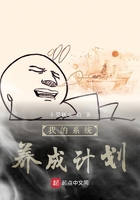While delight at having given an heir to the throne of the Bourbons, and a succession of fetes and amusements, filled up the happy days of Marie Antoinette, the public was engrossed by the Anglo-American war. Two kings, or rather their ministers, planted and propagated the love of liberty in the new world; the King of England, by shutting his ears and his heart against the continued and respectful representations of subjects at a distance from their native land, who had become numerous, rich, and powerful, through the resources of the soil they had fertilised; and the King of France, by giving support to this people in rebellion against their ancient sovereign. Many young soldiers, belonging to the first families of the country, followed La Fayette's example, and forsook luxury, amusement, and love, to go and tender their aid to the revolted Americans. Beaumarchais, secretly seconded by Messieurs de Maurepas and de Vergennes, obtained permission to send out supplies of arms and clothing. Franklin appeared at Court in the dress of an American agriculturist. His unpowdered hair, his round hat, his brown cloth coat formed a contrast to the laced and embroidered coats and the powder and perfume of the courtiers of Versailles. This novelty turned the light heads of the Frenchwomen. Elegant entertainments were given to Doctor Franklin, who, to the reputation of a man of science, added the patriotic virtues which invested him with the character of an apostle of liberty. I was present at one of these entertainments, when the most beautiful woman out of three hundred was selected to place a crown of laurels upon the white head of the American philosopher, and two kisses upon his cheeks. Even in the palace of Versailles Franklin's medallion was sold under the King's eyes, in the exhibition of Sevres porcelain. The legend of this medallion was "Eripuit coelo fulmen, sceptrumque tyrannis."
The King never declared his opinion upon an enthusiasm which his correct judgment no doubt led him to blame. The Queen spoke out more plainly about the part France was taking respecting the independence of the American colonies, and constantly opposed it. Far was she from foreseeing that a revolution at--such a distance could excite one in which a misguided populace would drag her from her palace to a death equally unjust and cruel. She only saw something ungenerous in the method which France adopted of checking the power of England.
However, as Queen of France, she enjoyed the sight of a whole people rendering homage to the prudence, courage, and good qualities of a young Frenchman; and she shared the enthusiasm inspired by the conduct and military success of the Marquis de La Fayette. The Queen granted him several audiences on his first return from America, and, until the 10th of August, on which day my house was plundered, I preserved some lines from Gaston and Bayard, in which the friends of M. de La Fayette saw the exact outline of his character, written by her own hand:
"Why talk of youth, When all the ripe experience of the old Dwells with him? In his schemes profound and cool, He acts with wise precaution, and reserves For time of action his impetuous fire.
To guard the camp, to scale the leaguered wall, Or dare the hottest of the fight, are toils That suit th' impetuous bearing of his youth;
Yet like the gray-hair'd veteran he can shun The field of peril. Still before my eyes I place his bright example, for I love His lofty courage, and his prudent thought.
Gifted like him, a warrior has no age."















